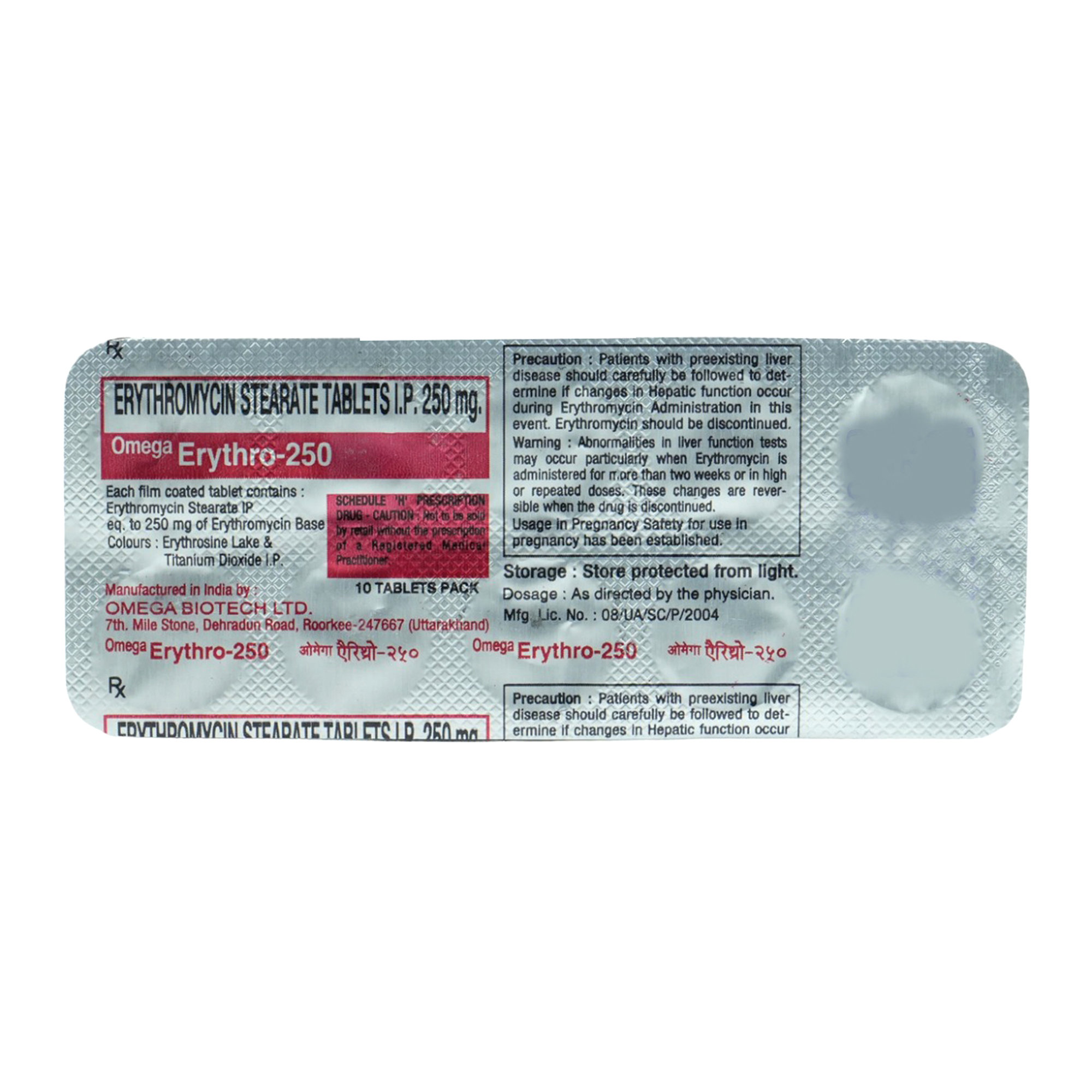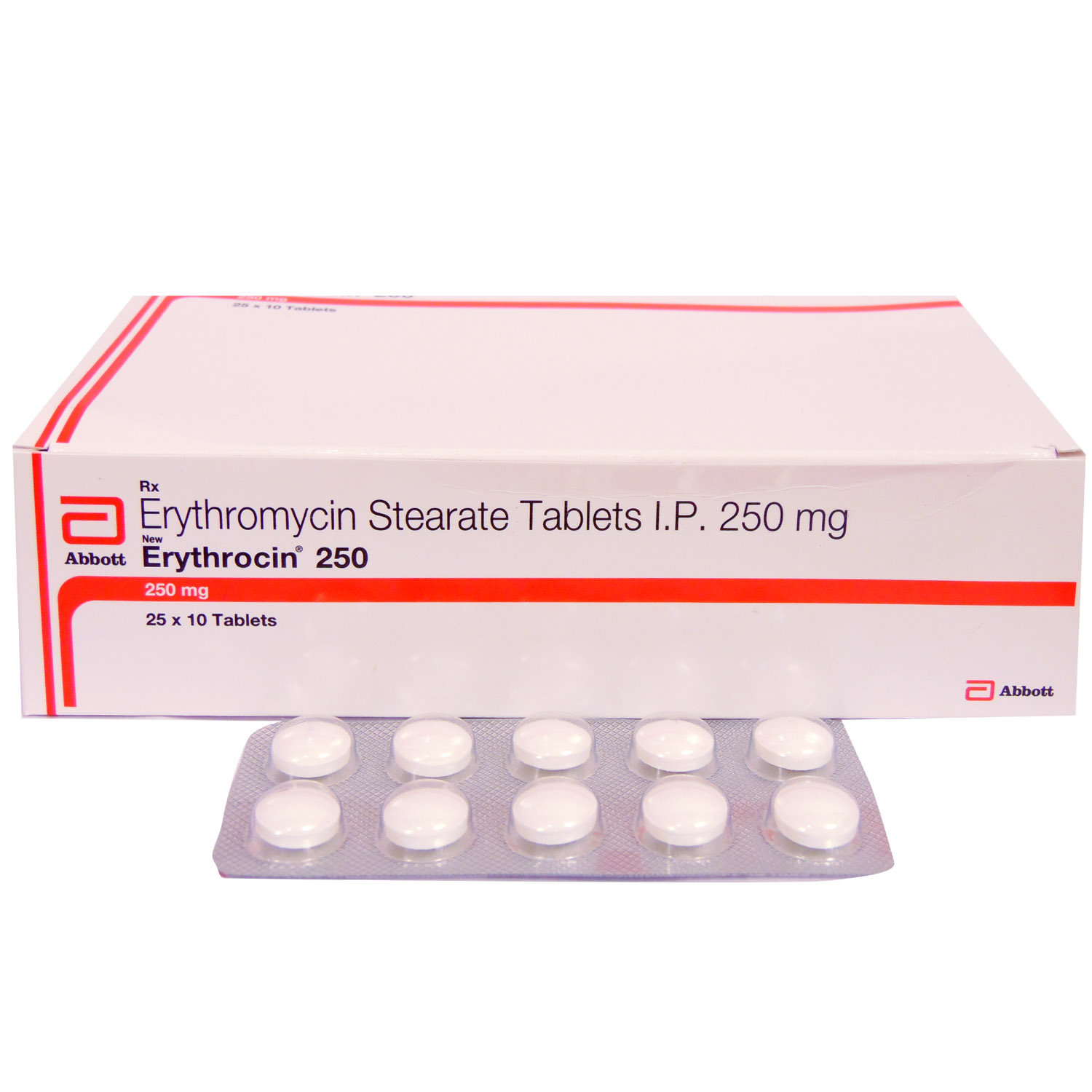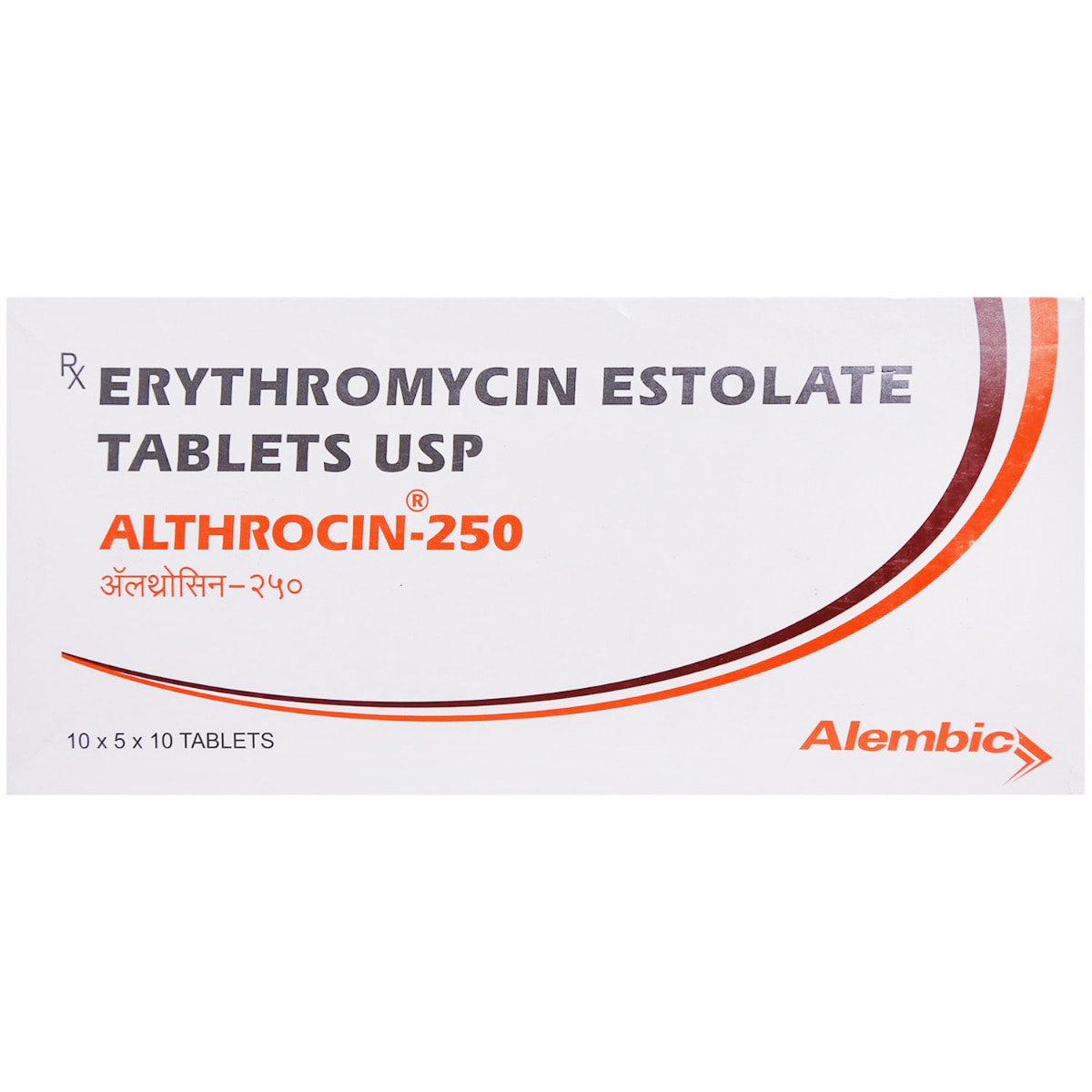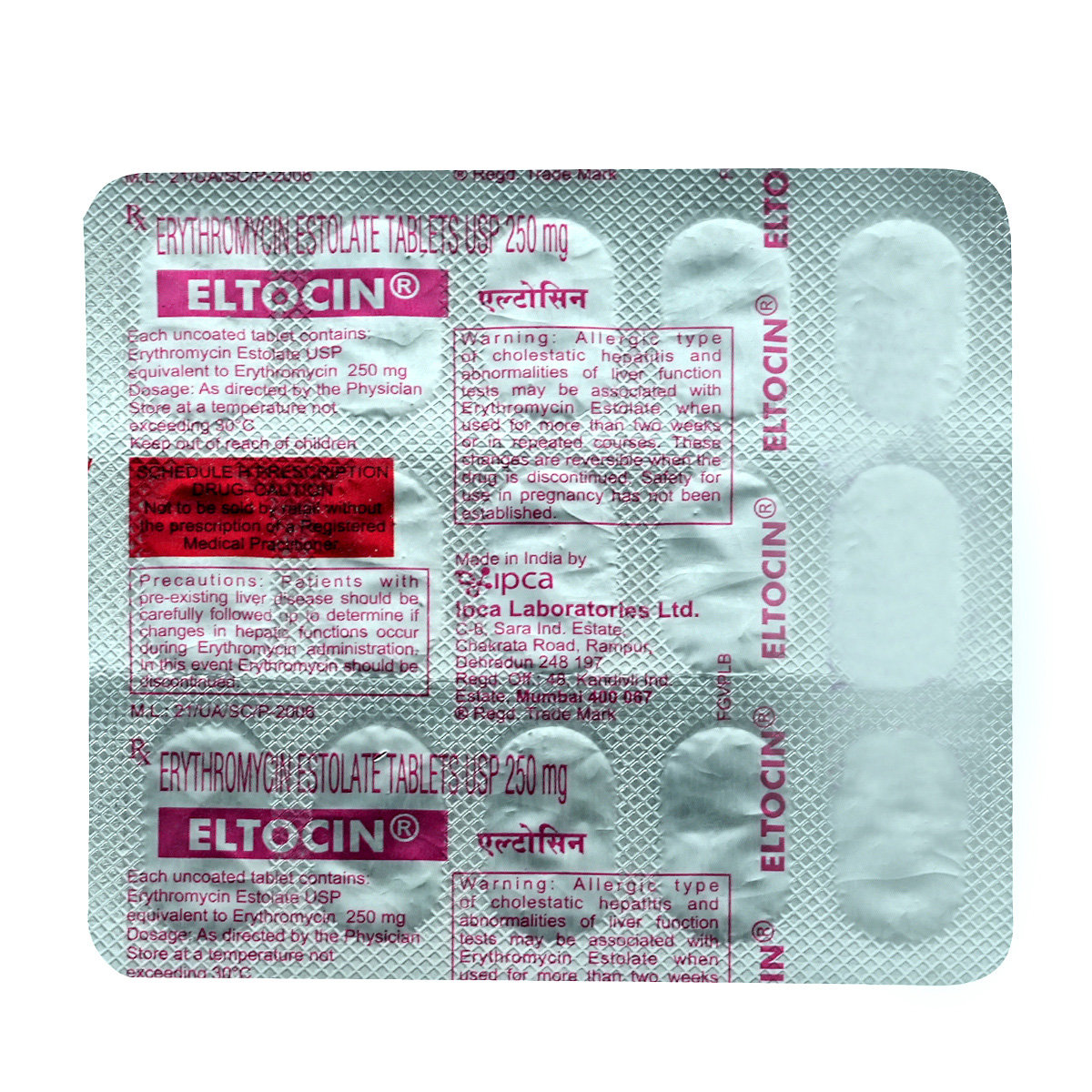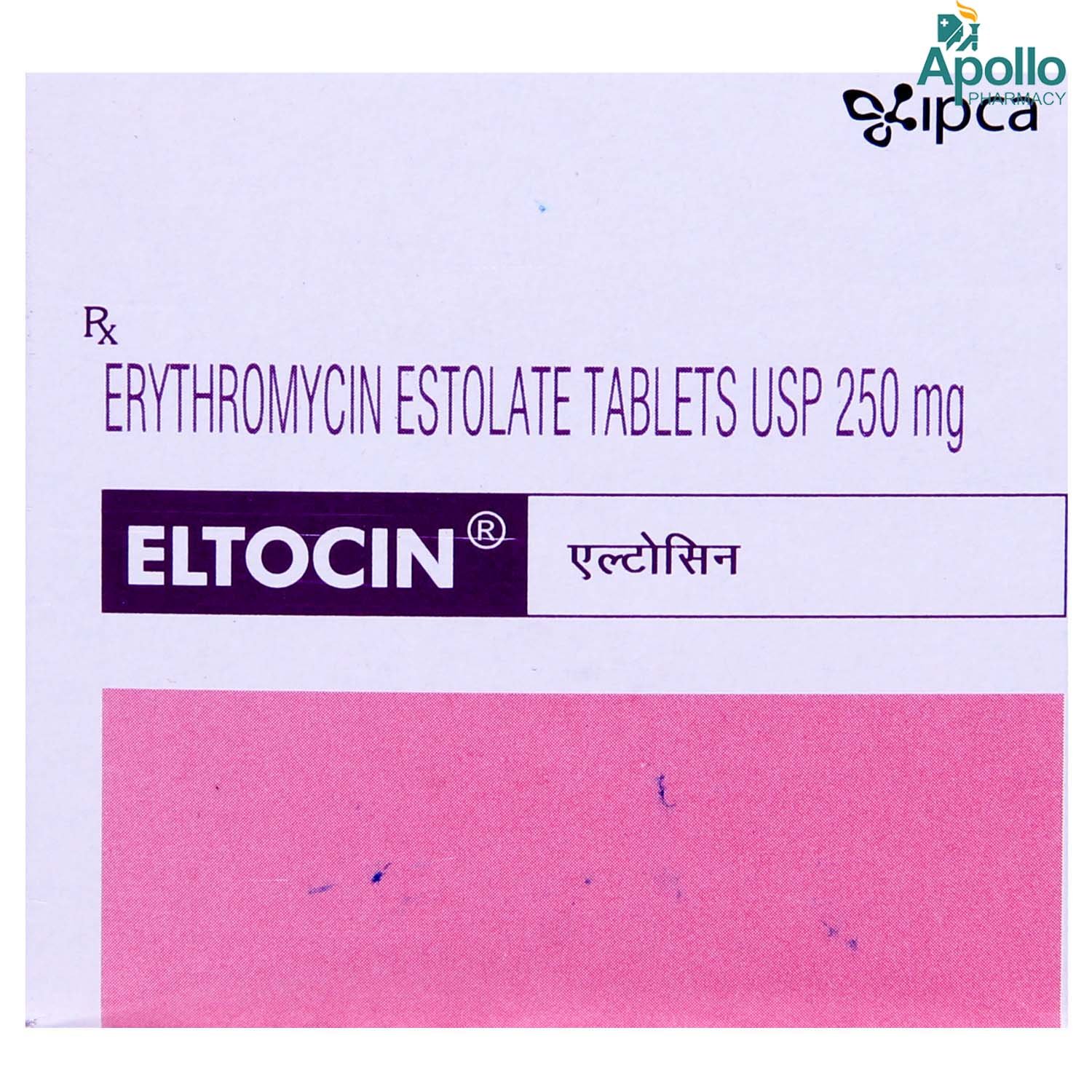Eryster 250mg Tablet
MRP ₹14.45
(Inclusive of all Taxes)
₹2.2 Cashback (15%)
Provide Delivery Location
Online payment accepted
 Prescription drug
Prescription drugWhats That
Composition :
Manufacturer/Marketer :
Consume Type :
Return Policy :
About Eryster 250mg Tablet
Eryster 250mg Tablet belongs to a group of medicines known as macrolide antibiotics. It's widely used to treat chest infections (pneumonia), skin conditions (acne and rosacea), dental abscesses (A pocket of pus in a tooth caused by an infection), and sexually transmitted infections. On the other hand, in children, Eryster 250mg Tablet is generally used to treat ear or chest infections. Bacterial infection is a condition in which bacteria grow in the body and cause infection. It can target any body part and multiple very quickly.
Eryster 250mg Tablet comprises Erythromycin, which works by slowing the growth or killing the harmful bacteria by preventing the production of proteins required by the bacteria for its survival. As a result, it effectively treats various bacterial infections.
Eryster 250mg Tablet should only be taken if advised by your doctor. It can be taken with or without food but should be consumed at a fixed time for the best results. Eryster 250mg Tablet should not be consumed more than the recommended dose to avoid unpleasant side effects. And also, the course should be completed even if you feel better as it is an antibiotic. Some common side effects of Eryster 250mg Tablet are diarrhoea, nausea, vomiting, and indigestion. Allergic reactions such as rashes, itching, swelling, and shortness of breath can occur in rare cases. Please consult your doctor if an allergic reaction becomes severe.
Do not take Eryster 250mg Tablet if you are allergic to Erythromycin or other macrolide antibiotics such as clarithromycin, azithromycin, or any of the other ingredients of this medicine. Tell your doctor if you have liver problems, muscle problems (myasthenia gravis), heart rhythm disorder (arrhythmia), porphyria (rare genetic blood disorder), and electrolyte imbalance (low potassium or magnesium level). In rare cases, the use of Eryster 250mg Tablet can cause diarrhoea, so if you have watery or bloody diarrhoea, stop taking Eryster 250mg Tablet and call your d ctor. However, do not take any anti-diarrheal medicine until your doctor tells you. If you are pregnant or breastfeeding, suspect you may be pregnant or plan to have a baby, consult your doctor before taking this medica ion. Women should onlyErythromycinmycin during pregnancy and lactation if absolutely necessary.
Uses of Eryster 250mg Tablet
Directions for Use
Key Benefits
Eryster 250mg Tablet comprises Erythromycin, is a macrolide antibiotic. Eryster 250mg Tablet kills the harmful bacteria by preventing the protein production required for bacteria to survive. Thereby it prevents and treats bacterial infections like throat and sinus infections, chest infections (like bronchitis and pneumonia), ear infections, mouth and dental infections, eye infections, skin and tissue infections (like acne), and stomach and intestinal infections. Besides this, it also helps prevent infection following burns, surgery or dental procedure, sexually transmitted infections, bone infections or scarlet fever (bacterial illness with strep throat).
Storage
Drug Warnings
Do not take it if you are allergic to Eryster 250mg Tablet or other macrolide antibiotics. Even if you feel better, do not stop taking your medication. If you discontinue treatment too soon, your condition may reoccur. Inform your doctor if you have liver problems, myasthenia gravis (muscle weakness), a heart rhythm disorder (arrhythmia), or an electrolyte imbalance (low potassium or magnesium level). In rare situations, using Eryster 250mg Tablet might induce diarrhoea; thus, if you have watery or bloody diarrhoea, stop taking Eryster 250mg Tablet and consult your doctor. However, do not take anti-diarrheal medication until your doctor tells you to. Before using Eryster 250mg Tablet, consult your doctor if you are pregnant, planning to become pregnant, or breastfeeding. It is advisable to avoid alcohol to prevent the chance of adverse effects such as dizziness. Before taking the Eryster 250mg Tablet, inform your doctor about your medical history and other medications you are now taking to rule out any potential adverse effects or interactions.
Diet & Lifestyle Advise
- You should take probiotics after taking the full course of Eryster 250mg Tablet to restore some healthy bacteria in the intestines that may have been killed. Taking probiotics after antibiotic treatment can reduce the risk of antibiotic-associated diarrhoea. Certain fermented foods like yoghurt, cheese, sauerkraut, kombucha and kimchi can help restore the intestine's good bacteria.
- Include more fibre-enriched food in your diet, as it can be easily digested by your gut bacteria, which helps stimulate their growth. Thus, fibre foods may help restore healthy gut bacteria after a course of antibiotics. Whole grains like whole-grain bread and brown rice should be included in your diet.
- Avoid taking too much calcium, iron-enriched foods and drinks as it might affect the working of Eryster 250mg Tablet.
- Avoid intake of alcoholic beverages with Eryster 250mg Tablet as it can make you dehydrated and affect your sleep. This can make it harder for your body to aid the Eryster 250mg Tablet in fighting off infections.
Side Effects of Eryster 250mg Tablet
- Diarrhoea
- Feeling sick or nausea
- Being sick or vomiting
- Stomach cramps
- Loss of appetite
- Bloating
- Indigestion
Habit Forming
Therapeutic Class
All Substitutes & Brand Comparisons
RX
Out of StockAvithrocin 250mg Tablet
₹35
(₹3.15 per unit)
142% COSTLIERRX
Out of StockErysoft 250mg Tablet
East West Pharma India Pvt Ltd
₹35.82
(₹3.22 per unit)
147% COSTLIERRX
Out of StockErythrol 250mg Tablet
Monokem Labs
₹38.4
(₹3.46 per unit)
166% COSTLIER
FAQs
Drug-Drug Interactions Checker List
- ASTEMIZOLE
- TERFENADINE
- MIZOLASTINE
- DOMPERIDONE
- PIMOZIDE
- AMISULPRIDE
- ERGOTAMINE
- DIHYDROERGOTAMINE
- SIMVASTATIN
- TOLTERODINE
- COLCHICINE
Disease/Condition Glossary
A bacterial infection is a condition in which harmful bacteria enter, multiply, and infect our body. It can target any body part and multiple very quickly. When you get infected with bacteria, you can experience generalized symptoms like fevers, chills, and fatigue. Bacteria are of various forms comprising commonly spherical, rod, and spiral-shaped. Bacterial infections vary from minor illnesses like sore throat and ear infections to severe brain infections like meningitis and encephalitis. Few harmful bacteria that cause infections include Streptococcus, Staphylococcus, and E.coli. Anyone can become infected with a bacterial infection. But, people with weak immune systems or taking immunosuppressive medicine can make you more prone to bacterial infection.

Have a query?
Alcohol
Safe if prescribed
Drinking alcohol with Eryster 250mg Tablet may potentiate symptoms of liver damage. So, Avoid or limit the consumption of alcohol.
Pregnancy
Consult your doctor
Eryster 250mg Tablet should be used by women during pregnancy only if needed. If you think you may be pregnant or are planning to have a baby, ask your doctor for advice before taking the Eryster 250mg Tablet.
Breast Feeding
Consult your doctor
Eryster 250mg Tablet should be used by women during breastfeeding only if needed. If breastfeeding, ask your doctor for advice before taking the Eryster 250mg Tablet.
Driving
Safe if prescribed
No data is available about the influence of Eryster 250mg Tablet on the ability to drive or operate machines. However, Eryster 250mg Tablet may cause dizziness and seizures, so ensure you are not affected before driving or operating machinery.
Liver
Consult your doctor
A person dealing with Liver problems should take Eryster 250mg Tablet only after consulting with a doctor. Your doctor will prescribe only if the benefits outweigh the risks.
Kidney
Consult your doctor
If you have or have a history or evidence of kidney-related diseases, please consult the doctor before taking medicine. The doctor may need to alter the normal dose.
Children
Safe if prescribed
It should be taken by the children only if the doctor has prescribed it.




